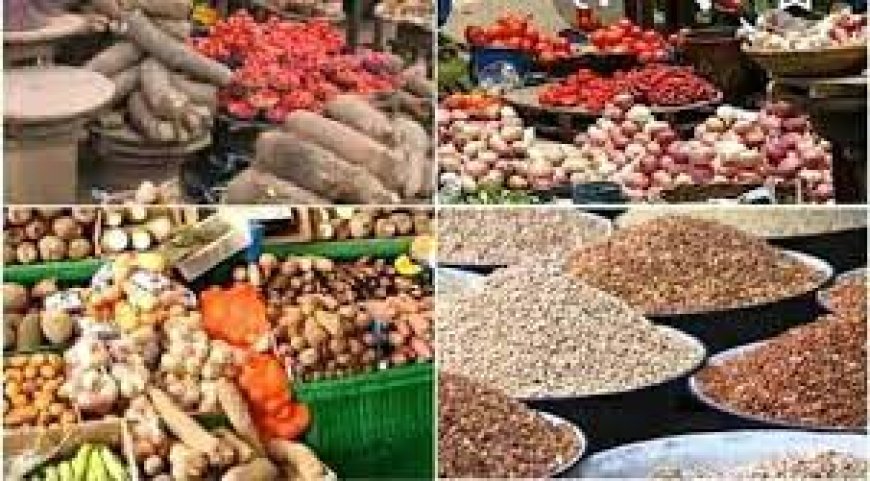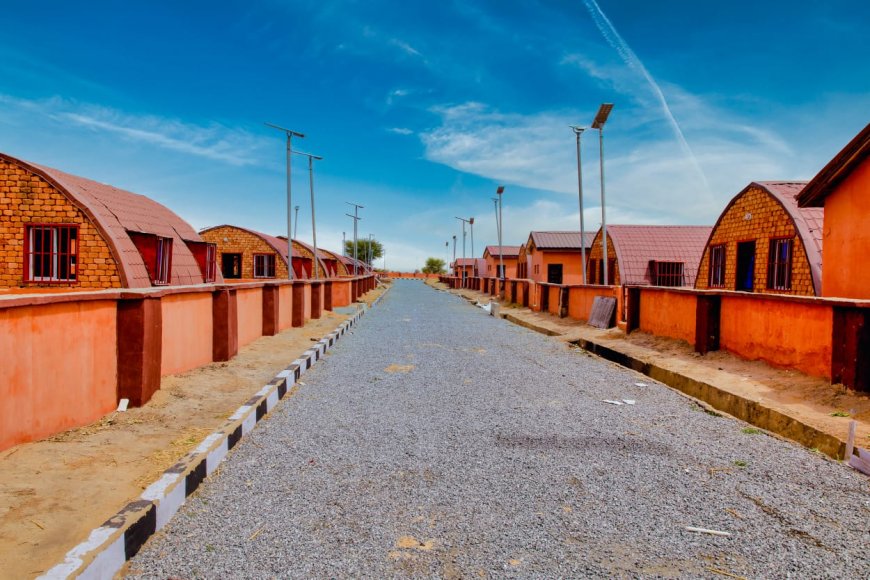Food prices stabilise in Kano, Kaduna, Katsina

As bumper harvests are being recorded in parts of Nigeria, the expected multiplier effects on the prices of farm produce have been mixed-grilled in Kano, Kaduna, and Katsina States.
The News Agency of Nigeria (NAN) learnt that prices have gone down in parts of Kano State, as well as Zaria and Kafanchan in Kaduna State.
NAN, however, gathered that some of the prices have remained high in parts of Kaduna City and Katsina State
Investigations by NAN in the three states showed that several factors were responsible for the varying prices of foodstuffs.
It was also observed that the development has taken a huge toll on the purchasing power of ordinary citizens in the three states.
In Kano State, the prices of food items were coming down as new harvests reached the markets.
A survey conducted by NAN revealed that the prices of some grains have decreased.
However, local rice, which is still experiencing a high demand, remains costly, with a bag going for between N150,000 and N170,000.
A bag of maize was selling for N95,000 as against N105,000.
A bag of beans that was previously sold for between NN170,000 and N180,000 is now sold for N130,000, depending on the quality.
Similarly, a bag of millet, which was sold for N90,000, now goes for N80,000.
A bag of groundnut sold for between N150,000 and N170,000, as against N200,000 in July.
Furthermore, the price of tomatoes has crashed in Kano as onions’ prices also witnessed an increase.
A bowl and a measure of tomatoes that used to be sold for N3,200 and N3,500 have been reduced to N2,400 and N2,000, respectively.
The survey revealed that a bag of onions was also going for N70,000.
A produce dealer, Malam Tanko Idris, attributed the availability of products to bumper harvests.
Another trader, Abubakar Labaran, also said that the increase in the price of onions was due to the fact that the product was severely affected by the recent rains.
This, he said, led to a shortage in supply and a subsequent increase in trices.
He added that tomato farming was successful, which led to a surplus in supply and a subsequent decrease in prices.
A customer, Musa Shanono, expressed optimism that the prices of food items would crash further before November.
“When people don’t produce but consume more, there is bound to be a food shortage, and the economy will become weak,” he said.
Another customer, Ibrahim Ali, appealed to the traders to desist from hoarding food in an attempt to make more gains.
Aisha Ali suggested the use of an adequate storage system to preserve some perishable items, like tomatoes, during the harvest season, to prepare for their scarcity.
According to her, the newly-harvested crops have triggered a 30 per cent drop in the prices of foodstuffs generally in markets.
In Kafanchan, farmers have attributed the reduction in the prices of foodstuffs to a bumper harvest from their farms.
The farmers made this known in separate interviews with the News Agency of Nigeria in Kafanchan.
Amos Barnabas, a large-scale farmer, said food prices were gradually coming down in the markets because the farmers had started harvesting their crops.
Ladi Gimba, a tomato seller, told NAN that tomatoes were now cheaper than they were at the beginning of the year.
According to her, a basket of tomatoes now goes for N22,000, as against N35,000 a few months ago.
She added that a basket of the produce went for N17,000 during the same harvest period in 2023.
Another farmer, Kambai Modecai, said he expects food prices to further crash in the coming months following the Federal Government’s suspension of import duties on food items.
Modecai said that though the import waiver on food items was a welcome development, he believed Nigeria was capable of feeding itself without opening up the borders.
In Zaria, also in Kaduna State, the prices of agricultural commodities stabilised in August at major markets within the zone, especially at the Anchau weekly market in Kubau LGA.
On Aug. 6 and Aug. 13, hybrid maize (white, red, and yellow) was going for N85,000 for a 100kg bag.
Also, local maize (white and yellow) was going for ₦75,000 per 100kg bag.
Similarly, soybean was going for between ₦90000 and 95,000 per 100kg bag, while sorghum (short kaura and white) was ₦82000 per 100kg bag.
Also, cowpeas (white and brown) were being sold for between N160,000 and 190,000 per 100kg bag.
Millet (Dauro) was going for ₦86000 per 100kg; paddy rice was ₦60000 per 80kg; and milled rice was ₦140000 per 100kg bag.
On Aug. 7 at the Saminaka market in Lere LGA, the price of maize dropped to N73,000 for a hybrid variety, while the price of local rice was N70000 for a 100kg bag.
Paddy rice was between N58,000 and N60,000; soybean was N90,000, sorghum was N73,000; and cowpea dropped to N140,000 and N160,000.
However, the prices were slightly higher. In Giwa LGA on Thursday, a 100kg bag of maize was going for between N88,000 and 91,000.
Paddy rice was between N65,000 and N70,000; soybean was sold at N96,000; and sorghum was N90,000.
Millet was going for N90,000, a 100kg bag of cowpea brown was N200,000, and white cowpea was N165,000.
In Kaduna city and its environs, some Kaduna residents said that the news being peddled about the reduction in prices of food items was not the reality in markets.
Both the consumers and sellers of food items and other essentials told the News Agency of Nigeria (NAN) that there was no significant change in the food prices
What's Your Reaction?





















































